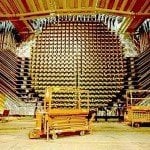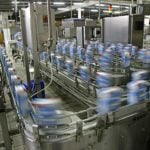The National Research Council of Canada (NRC) announced that it will build a pilot facility that will use algae to recycle industrial CO2 emissions int0 valuable products such as biofuels. Together with Canadian Natural Resources and Pond Biofuels, NRC will build the $19 million facility, which it says will be a “game changer for industry,” in Alberta. The Algal Carbon Conversion Pilot Project has the potential, a joint release from the project’s partners says, to “revolutionize” how industrial carbon emissions are managed.

The partners in the pilot project will establish a demonstration-scale algal biorefinery at a Canadian Natural site, near Bonnyville, Alberta. Industrial emissions will be recycled by using carbon dioxide to grow algal biomass, which will undergo further processing into products, such as biofuels, livestock feed and products to improve soil.
The goal of the project is to test the viability and feasibility of such a facility. If successful, the model can then be used for recycling industrial emissions across industries elsewhere.
The CEO of Pond Biofuels, Steven Martin, said that the work establishes Canada as “the world leader” in carbon capture and recycling. Pond Biofuels currently works with the cement and steel industries to implement algae technology.
The announcement follows statements by the Minister of State for Science and Technology, Gary Goodyear, that the NRC would henceforth be required to focus more on technology that can be of direct benefit to Canadian industry. He said at a news conference this week that the NRC had become a web of “fiefdoms” each pursuing its own agenda, and had become inflexible and unable to respond to the needs of industry. The Algal Carbon Conversion project is seen as an example of that sharpened focus on “real world” applications for industry and business development that the government expects from the re-structured NRC.

































